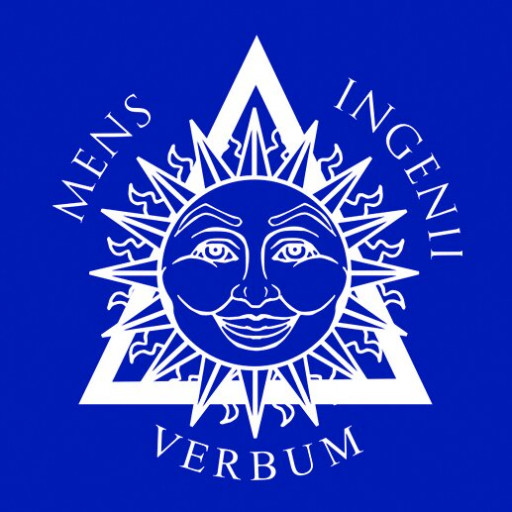Photos of university / #imperialcollege
Biomedical Engineering at Imperial College London offers a comprehensive interdisciplinary education that integrates the principles of engineering, biology, and medicine to develop innovative solutions for healthcare challenges. This programme is designed to equip students with a strong foundation in engineering sciences, combined with an in-depth understanding of biological systems and medical technologies. Throughout the course, students will explore topics such as biomechanics, medical imaging, biomaterials, tissue engineering, and biomedical instrumentation, preparing them to contribute to the advancement of healthcare technology and medical device development.
The curriculum is structured to provide both theoretical knowledge and practical skills, with numerous laboratory sessions, design projects, and opportunities for research with leading experts in the field. Students will learn to apply engineering methods to solve problems related to human health, from designing prosthetics and surgical tools to developing diagnostic devices and novel therapies. The programme emphasizes innovation, critical thinking, and teamwork, fostering an environment where students can collaborate on cutting-edge projects and contribute to translational research.
Imperial College London’s strong links with healthcare industries and research institutions ensure that students gain real-world experience and exposure to the latest advancements in biomedical technology. The programme also offers options for industrial placements and collaborations, enabling students to build professional networks and enhance their employability. Graduates from the programme are well-prepared for careers in medical device companies, healthcare technology firms, research institutions, and regulatory agencies, or for further postgraduate study and research.
Overall, the Biomedical Engineering BEng at Imperial College London is dedicated to developing highly skilled engineers who can innovate within the rapidly evolving biomedical field and make meaningful contributions to improving patient care and health outcomes worldwide.
The BSc Biomedical Engineering programme at Imperial College London offers students a comprehensive and rigorous education at the intersection of engineering, medicine, and biology. Designed to equip future engineers with the skills needed to develop innovative healthcare solutions, this course covers a wide range of interdisciplinary topics. Students will explore areas such as biomechanics, biomaterials, medical imaging, biosignal processing, and biomedical instrumentation, gaining both theoretical understanding and practical experience.
Throughout the programme, students are encouraged to undertake laboratory work, project-based learning, and collaborations with industry partners, fostering hands-on skills essential for a career in biomedical engineering. The curriculum emphasizes core engineering principles alongside biological sciences, ensuring graduates are well-versed in designing and improving medical devices, healthcare technologies, and diagnostic tools. The course structure includes foundational courses in physics, mathematics, and computer science, combined with specialized modules in areas such as tissue engineering, regenerative medicine, and healthcare data analytics.
Imperial College London leverages its strong links with industry and research institutions, providing students with exciting opportunities for placements, internships, and research projects. The programme also promotes innovation, entrepreneurship, and ethical considerations in biomedical engineering, preparing graduates to contribute effectively to medical technology development and healthcare improvement.
In addition to technical competencies, students develop critical skills in teamwork, communication, and project management, vital for leadership roles in the biomedical sector. The programme's state-of-the-art laboratories and research facilities enable students to work on real-world problems, fostering creativity and problem-solving abilities. Graduates of the BSc Biomedical Engineering course can pursue diverse careers in medical device design, healthcare consultancy, clinical engineering, and research, or continue further studies at postgraduate levels. Overall, this programme offers an excellent pathway for those passionate about making a meaningful impact on healthcare through engineering innovations.
Program requirements for the BSc Biomedical Engineering at Imperial College London include a strong foundation in mathematics, physics, and biology. Applicants are typically expected to have completed relevant A-levels or equivalent qualifications with high grades in Mathematics and Physics. Chemistry or Biology are also advantageous. A minimum of AAA at A-level is often considered competitive, though specific entry requirements may vary each year. For international students, proficiency in English is mandatory, with accepted tests including IELTS (with a typical overall score of 6.5 or higher) or TOEFL. Applicants are encouraged to demonstrate an interest in engineering and biomedical sciences through personal statements and relevant extracurricular activities.
The program emphasizes a multidisciplinary approach, requiring students to engage in coursework spanning biomechanics, medical imaging, biomaterials, systems biology, and medical device design. Practical laboratory work is integral, with students expected to undertake projects and team-based activities that develop problem-solving and research skills. Prior experience in programming or computing is beneficial but not mandatory; however, familiarity with software such as MATLAB, Python, or similar tools can enhance learning outcomes.
Candidates should also consider the importance of teamwork, communication skills, and ethical understanding in healthcare technology development. The program may also look favorably upon experience or internships in healthcare, research, or engineering environments. There are no formal work experience requirements, but relevant exposure can strengthen applications. Overall, applicants should demonstrate a genuine interest in advancing healthcare through engineering innovations, a rigorous academic background, and readiness to engage with complex scientific problems.
The Biomedical Engineering program at Imperial College London offers a range of funding opportunities to support students throughout their studies. For UK students, there are options such as the Imperial College PhD Scholarship Scheme, which provides full tuition fee coverage and a maintenance stipend. Additionally, students may be eligible for government-funded bursaries and grants, including the Engineering and Physical Sciences Research Council (EPSRC) funding, which supports research-focused postgraduate students. International students are encouraged to explore scholarships like the Imperial President's Undergraduate Scholarships, which can provide substantial financial support, though international funding options are more limited compared to domestic funding. Some students may seek external funding from organizations such as industry sponsors, charitable foundations, or government agencies depending on their nationality and specific eligibility criteria. The university provides comprehensive guidance on applying for these awards and grants, with dedicated financial aid offices and online resources to assist prospective and current students. Furthermore, students are advised to explore external scholarship opportunities, including national and international awards, which can significantly offset tuition fees and living expenses. It is important for prospective students to start their funding applications early, carefully reviewing eligibility requirements and deadlines. Scholarships at Imperial College London are competitive, and successful applicants often demonstrate strong academic records and relevant research interests. The college also offers payment plans to help manage tuition fees, allowing students to spread payments over the academic year. Overall, the financing studies for the Biomedical Engineering program are designed to make postgraduate education accessible and affordable, with multiple pathways for funding available to accommodate diverse student backgrounds and needs.
The BSc Biomedical Engineering program at Imperial College London provides students with a comprehensive education in the application of engineering principles to medicine and healthcare. This undergraduate degree combines rigorous training in engineering fundamentals with in-depth knowledge of biological and medical sciences, enabling graduates to develop innovative solutions to complex medical challenges. The curriculum covers core topics such as biomechanics, biomaterials, medical imaging, bioinstrumentation, and systems physiology, ensuring students acquire both theoretical understanding and practical skills. Students engage in laboratory work, project-based learning, and industry placements, fostering hands-on experience and professional development. The program is designed to cultivate critical thinking, problem-solving abilities, and interdisciplinary collaboration, preparing graduates for careers in medical device design, healthcare technology, research, and development. Imperial College London's strong links with hospitals, industry partners, and research institutes provide students with valuable networking opportunities and access to cutting-edge advancements in biomedical engineering. The program also emphasizes innovation and entrepreneurship, encouraging students to develop new medical technologies and translate research into real-world applications. Graduates of this program are equipped to contribute to the rapidly evolving field of biomedical engineering, impacting patient care, medical diagnostics, and treatment strategies. The degree can serve as a stepping stone to postgraduate study or professional certification in biomedical engineering or related fields. Overall, Imperial College's Biomedical Engineering program aims to produce highly skilled, ethically responsible engineers who are prepared to address global health challenges through technological innovation.









